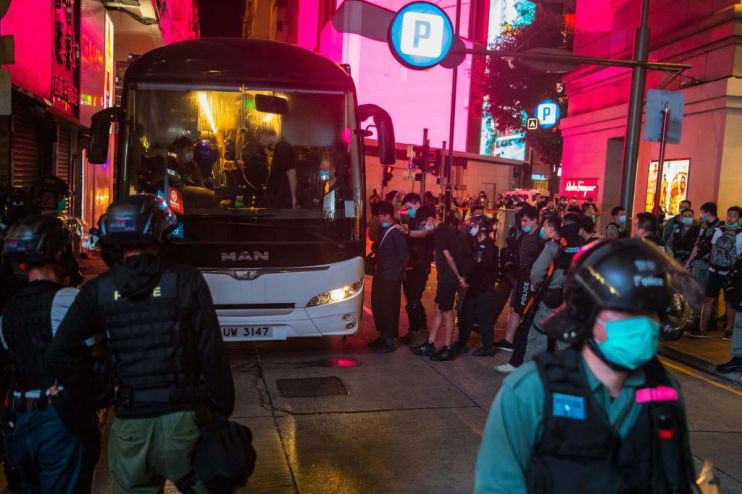Hong Kong man charged with terrorism in first use of new security law

A man carrying a sign reading “Liberate Hong Kong” as he drove a motorbike into police at a protest has become the first person charged with inciting separatism and terrorism under a new security law.
Beijing imposed the legislation on the former British colony earlier this week despite protests from Hong Kongers and Western nations, setting China’s freest city on a more authoritarian path.
Critics say the law — which punishes crimes of secession, subversion, terrorism and collusion with foreign forces with up to life in prison — is aimed at crushing dissent and a long-running campaign for greater democracy in the financial hub.
Hong Kong police said 23-year-old Tong Ying-kit rammed and injured some officers at an illegal protest on Wednesday.
A video posted online showed a motorbike knocking over several officers before the driver falls over and is arrested.
Tong, who was hospitalised after the incident, was charged less than 24 hours after the city government said the slogan he was carrying — “Liberate Hong Kong, revolution of our times” — connotes separatism or subversion under the new law.
The rallying cry appears on placards, T-shirts, and post-it notes stuck to walls around the financial hub.
Before the Open newsletter: Start your day with the City View podcast and key market data
China’s parliament adopted the security law following months of protests in the city triggered by fears Beijing was the stifling freedoms guaranteed by a “one country, two systems” formula agreed when Hong Kong returned to Chinese rule in 1997.
Authorities in Beijing and Hong Kong say the law is aimed at a few “troublemakers” and the not wider rights afforded to the city under the agreement, but international concern over the legislation mounted after authorities arrested 10 people under the new law within 24 hours of it taking effect.
The European Union has put Hong Kong high on its agenda, while the United Nations’ human rights office said today that it was “alarmed” at arrests under the new legislation.
“We are alarmed that arrests are already being made under the law with immediate effect, when there is not full information and understanding of the scope of the offences,” UN human rights spokesman Rupert Colville said.
“We are concerned that the definition of some of the offences contained in the law are vague and overly broad and do not adequately distinguish between violent and non-violent acts.”
“This may lead to discriminatory or arbitrary interpretation and enforcement of the law, which could undermine human rights protection,” Colville added.